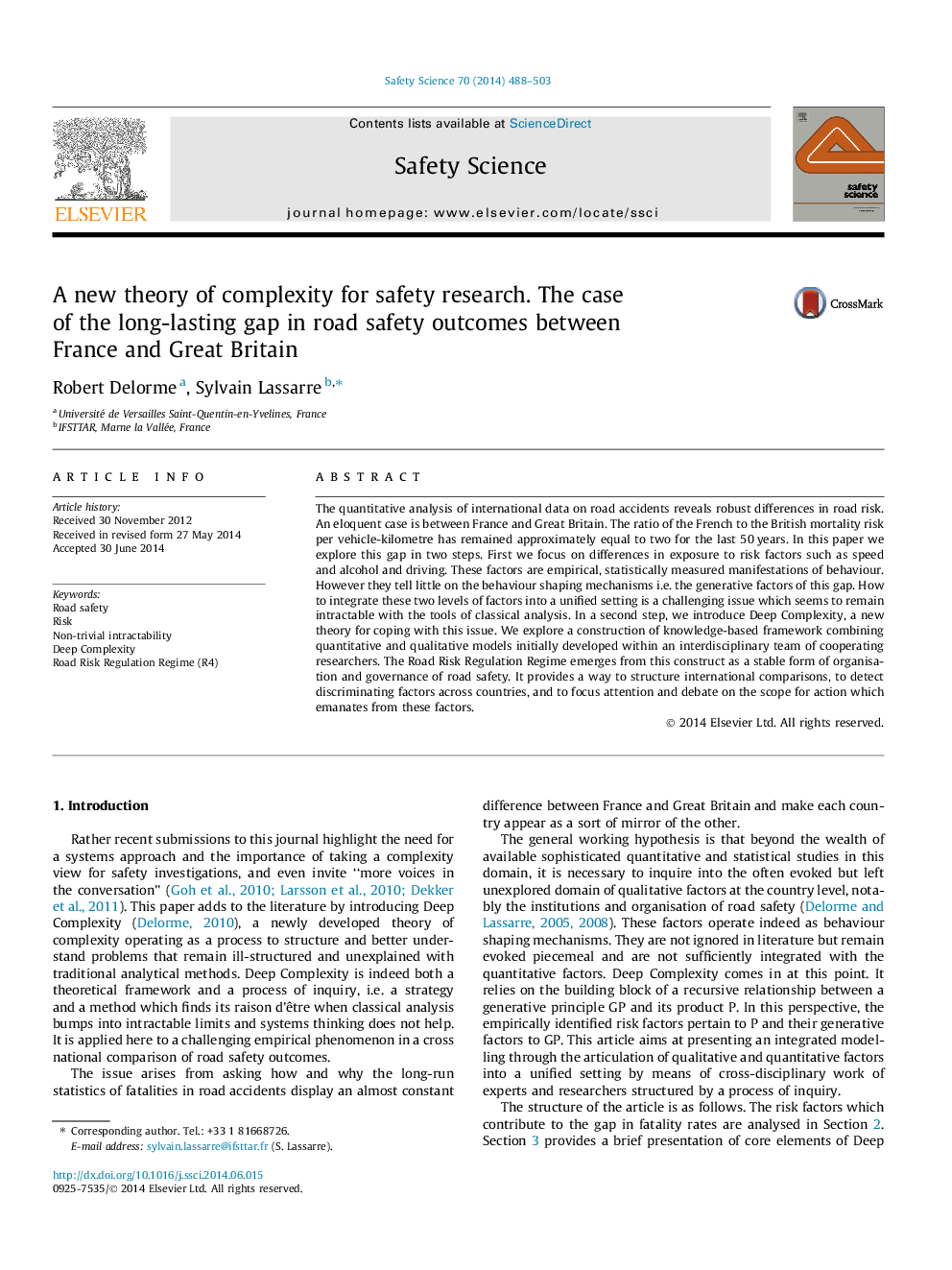| Article ID | Journal | Published Year | Pages | File Type |
|---|---|---|---|---|
| 6976176 | Safety Science | 2014 | 16 Pages |
Abstract
The quantitative analysis of international data on road accidents reveals robust differences in road risk. An eloquent case is between France and Great Britain. The ratio of the French to the British mortality risk per vehicle-kilometre has remained approximately equal to two for the last 50Â years. In this paper we explore this gap in two steps. First we focus on differences in exposure to risk factors such as speed and alcohol and driving. These factors are empirical, statistically measured manifestations of behaviour. However they tell little on the behaviour shaping mechanisms i.e. the generative factors of this gap. How to integrate these two levels of factors into a unified setting is a challenging issue which seems to remain intractable with the tools of classical analysis. In a second step, we introduce Deep Complexity, a new theory for coping with this issue. We explore a construction of knowledge-based framework combining quantitative and qualitative models initially developed within an interdisciplinary team of cooperating researchers. The Road Risk Regulation Regime emerges from this construct as a stable form of organisation and governance of road safety. It provides a way to structure international comparisons, to detect discriminating factors across countries, and to focus attention and debate on the scope for action which emanates from these factors.
Keywords
Related Topics
Physical Sciences and Engineering
Chemical Engineering
Chemical Health and Safety
Authors
Robert Delorme, Sylvain Lassarre,
